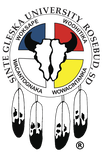|
Tahča Kuwápi Oyákapi
Hemákoškaŋtu etaŋ oyáte waŋ igláka ayá na ečel mniskúya oyúze íhe ečiyátaŋ etípi. Yuŋkaŋ líla wičaákih́aŋ na le oyáte ománi ipí eša čoká aglí. Hečel waŋna wakáŋyeja waŋjígji wóla čeyápi na líla oiyókišiča. Yuŋkaŋ ḱtayetuel wičah́čala waŋ eyápaha na lečel eyápaha: Wičah́čala: Hiŋhaŋna kiŋ hočókáta típi iyákiju iyáh́payáyapi ktá ske lo; koškaláka waŋ wo ničupi kta ča hetaŋ yiŋ kta kéye lo. Na waŋna hiŋhaŋna el ečoŋpi. Yuŋkaŋ koskaláka waŋ el hí na Koškaláka: Witaŋšna uŋ num omákú po; hena čaŋnúŋpa mičiyúhapi kte lo, na šuŋk luzáhaŋ num wičawáčiŋ yelo. Na waŋna ečel ečakíčoŋpi.Yuŋkaŋ lowaŋ na yaštaŋ na lečel eya: Haŋhepi kiŋ eháke típi le tíma uŋlowáŋpi kte lo. Na waŋn haŋhepi el atáya típi kiŋ okšaŋ enájiŋ na lečel eya: Owásiŋ čaŋsakála wočakú na típi el oṕa lowaŋ wičaši na noŋgóptaŋ ečoŋ po. Tokša tíma wamákaškaŋ ahí kte lo. Na waŋna lowáŋpi. Hečel tíma pte na tah́ča ko nauŋkápi na šake ičičašla nauŋkápi na haŋčokáŋyaŋ enákíyapi na waŋna hiŋhaŋna el típi kiŋ el oyáte kiŋ óimničiye na okšaŋ enájiŋ. Yuŋkaŋ koškaláka k’oŋ el eyókas’iŋ na lečel eya: wičaša num wičakíčo na wíhúta yujuŋpi na iyúwaŋka eglepi na oyáte kiŋ wanyáŋk wičaši. Hečel kíyela ayá. Yuŋkaŋ atáya nablúpi típi kiŋ tíma, na tah́ča oyé na pte oyé na wamákaškaŋ owásiŋ na hiŋ ko onašlašlapi. Na waŋna oyáte kiŋ le waŋyáŋka yuštaŋpi ehaŋl waŋna witáŋšna uŋ k’oŋ nupíŋ hena toṕ ob tíma iyayápi. Na oyáte kiŋ el taŋkatáhaŋ waŋyaŋk najiŋpi. Na waŋna glínapápi. Yuŋkaŋ witáŋšna uŋ k’oŋ nupiŋ ka ablel yeyápi na čaŋnuŋpa waŋ uŋma yuh ana uŋma wauŋyáŋpi na itókšaŋ tokíyapi; na koškaláka k’oŋ tokéya u na hehaŋl wikoškaláka nupiŋ upí; na hehaŋl šuŋk luzáhaŋ yuha k’oŋ nupiŋ upi, na wakaŋ k’oŋ he lečel eya: Wičaša Wakaŋ: Owásiŋ čaŋksa iču po na whiŋkpe nakuŋ; na owasiŋ mihakáb u po. Hečel waŋna páha waŋ el enájiŋ na waŋna lečel eya: Le pejuta waŋ tatúye tópa owásiŋ wapóǵaŋ kta ča he bluštaŋ kiŋhaŋ, hehaŋl lenayós káki ka páha waŋ líla tehaŋl yaŋke kiŋ heči anóŋk íčičuya iyáyapi kte lo, ča uŋma hiŋzi kiŋ le čatkáyataŋhaŋ iyáyiŋ kte lo, na uŋma hiŋša kiŋ le išloyátaŋhaŋ iyáyiŋ kte lo, na waŋna iyáya po. Hečel nupiŋ líla ičítehaŋyaŋ iyáyapi; na waŋna tehaŋl yapi el lečel oyáte kiŋ ewíčakiya: Letaŋhaŋ ho’anóŋg atáya najiŋ yeyápi na ečel típi he el aŋuŋǵ ihuŋníya po. Na waŋna tíyatákiya iglahómŋi na típi etkíya glápi na waŋna el kihuŋnipi na tíyopa el kinajiŋpi wiŋyaŋ nupiŋ om, na lowaŋ najiŋ, na ečel waŋna iyayápi k’oŋ kúpi na kíyela kúpi ečel atáya okšaŋ mak’oṕoya haŋ na waŋna glíhuŋnipi ičuŋhaŋ iš eya wamákaskaŋ očaje owásiŋ ahíhuŋni na waŋna atáya okáwiŋǵ au na oyáte kiŋ okšaŋ au na wičakat’api naiŋš wičaópi. Na waŋna líla wičáktepi. Na etaŋ šuŋgmanítu na h́ok’a na wamákaškaŋ čikčik’alapi uŋ hena awičayškaŋpi. Na oyáte kiŋ líla wašečapi. Le nuŋpa akígle ečoŋpi. Na heoŋ le makóče kiŋ tah́ča okúwa el eyápi. Hečel le pejúta kiŋ líla wakáŋ yawápi. Oyáte owásiŋ le lečetú na heháŋtaŋ waníyetu opáwiŋǵe šni maḱoče le waŋbláka. Heoŋ obláka. 2 Description Of A Deer Hunt A tribe began to move their camp from a wilderness, and so they pitched their tents a distance from a butte. They were badly starving, and now though people had gone out on foot they returned with nothing to eat. So, each of the children were crying wanting food and were very unhappy. One evening an old lady made an announcement and this is the word she spread: Old Lady: Tomorrow morning they say you should take and join tents together for meeting; when a young man has fed you, they say he will leave from there. And in the morning, it was done. And a young man came there and said: Young Man: Grant me two girls; they will carry a pipe for me, and I wish for two fast horses. And so, it was done for him. Then he sang a song, finished it, and said this: On the last night let us sing songs in this tipi. Now during the whole night, they were standing about the tent and he said: Give everyone a switch, tell them to join him singing at the tent, and do listening. Soon animals will arrive indoors. Now they sang. So, buffalo and deer too were running inside, galloping clicking their hooves together, ending it at midnight, and in the morning the people gathered at the tent and were standing around. Then the young man peeked in and said: He called for two men, they pulled up the bottom of the tent, held it up, and he told the people to take a look. They came near. Inside was all trampled, there were deer tracks and buffalo tracks, there was every animal all without hair as well. When the people now were finished looking, the two girls took his hand; and they both leading a fast horse, the four of them went inside. The people stood looking on from the outside. They now came out. And both the girls let down their hair, one held a pipe, the other an offering, and they put on their faces a round blue stripe; first the young man came, then came both the young women; then they both came with a fast horse, and the holy man said: Holy Man: All take a switch, an arrow too, and all come behind me. So, they went and stood by a hill and now this is what he said: If when I have finished here with blowing a medicine in all the four directions, then these two girls will go on both sides of the hill passing part ways far beyond; and this buckskin will go to the left, and this sorrel will go to the right, now be off with you. So, they both went out very far from each other, and when they had gone a long while he said to the people: From here on both sides of the camp circle they should take a stand, and so go up to either side of the tent. He turned around toward the tent, they went back toward the tent, arrived there, there at the door stood both women together, he stood singing; so the ones that had gone came back, and so coming close dust was flying everywhere about; and while they were arriving animals too, of every kind, arrived, coming at a distance, circling round and coming around the people and they shot or killed them. Now, many did they kill. They waved away some wolves and badgers and the quite small animals. The people were very rich in provisions. They did this three times. And so they say this area is called a place in which to hunt deer. So, they consider this medicine to be very special. This is the way it was with all tribes; and since that time, not a hundred winters ago, I have seen this countryside.
0 Comments
One Book South Dakota Author Visited SGU Bookstore
Nick Estes, Kul Wicasa [kuhl wee-CHAH-shah] and a citizen of the Lower Brule Sioux Tribe, recently joined the Department of American Indian Studies at the University of Minnesota. Before that, he served as an Assistant Professor in the American Studies Department at the University of New Mexico, and he was the American Democracy Fellow at the Charles Warren Center for Studies in American History at Harvard University. Estes is not only a historian and author, but also a co-founder of The Red Nation, an Indigenous resistance organization. His research engages colonialism and global Indigenous histories, with a focus on decolonization, U.S. imperialism, environmental justice, anti-capitalism, and the Oceti Sakowin [oh-CHEH-tee shah-KOH-wee]. In the 2022 One Book South Dakota selection, “Our History Is the Future,” author Nick Estes places the Indigenous-led movement to stop the Dakota Access Pipeline into historical context. This summer, he is traveling the state to talk directly with readers. Sinte Gleska University hosted Estes on his One Book South Dakota Author Tour for “Our History Is the Future” on August 4, 2022 at the SGU Bookstore. He discussed his work, answered questions and signed books. “Our History Is the Future: Standing Rock Versus the Dakota Access Pipeline, and the Long Tradition of Indigenous Resistance” discussions and author visits fulfill the South Dakota Humanities Council’s mission to “celebrate literature, promote civil conversation, and tell the stories that define our state.” Author Nick Estes will visit several South Dakota communities this summer and will speak at the 2022 South Dakota Festival of Books, Sept. 23-25 in Brookings. “Our History Is the Future” addresses timely issues of regional relevance and puts them in the context of centuries of Indigenous resistance to injustice, with a particular focus on the experiences of the Oceti Sakowin – the Lakota, Dakota, and Nakota people. A native of Chamberlain and a citizen of the Lower Brule Sioux Tribe, Estes spent more than a decade researching the book, which fills a gap he saw in historical literature. “This book was written for my 16-year-old self,” he said. “I didn’t have any knowledge of Native writers or Native books, and I especially didn’t have a firm grasp of the history of this land. Standing Rock provided a way to talk about not only current activism but also a long history of settler colonialism in the Missouri River basin and along the river that we call Mni Sose.” Estes hopes his book will provide inspiration for readers who learn about the humble origins and future-oriented goals of #NoDAPL and the movements that came before it. “Many of our movements throughout history were started by humble people, and those humble people were the ones who changed history and changed the future of this planet,” he said. “That’s incredible. And that’s something that I think everyone, whether you’re Indigenous or not, should feel inspired by.” Estes recently joined the Department of American Indian Studies at the University of Minnesota. Before that, he served as an Assistant Professor in the American Studies Department at the University of New Mexico. For 2017-2018, Estes was the American Democracy Fellow at the Charles Warren Center for Studies in American History at Harvard University. In 2014, he co-founded The Red Nation, an Indigenous resistance organization. His research engages colonialism and global Indigenous histories, with a focus on decolonization, U.S. imperialism, environmental justice, anti-capitalism, and the Oceti Sakowin. With Jaskiran Dhillon, Estes edited the volume “Standing with Standing Rock: Voices from the #NoDAPL Movement,” which draws together more than thirty contributors, including leaders, scholars, and activists. He was a guest editor with Melanie K. Yazzie of a special issue of Wicazo Sa Review on the legacy of Dakota scholar Elizabeth Cook-Lynn, one of the founders of American Indian Studies. In 2015, Estes’ reporting on border town violence and racism for Indian Country Today won a Third Place Prize for Excellence in Beat Reporting from the Native American Journalism Association. His writing has also appeared in The Intercept, Jacobin, The Funambulist Magazine and High-Country News. His film and book reviews can be found in Environmental History, Native American and Indigenous Studies Journal, Harvard Business Review and Abolition Journal. SGU Director of Nursing Retires 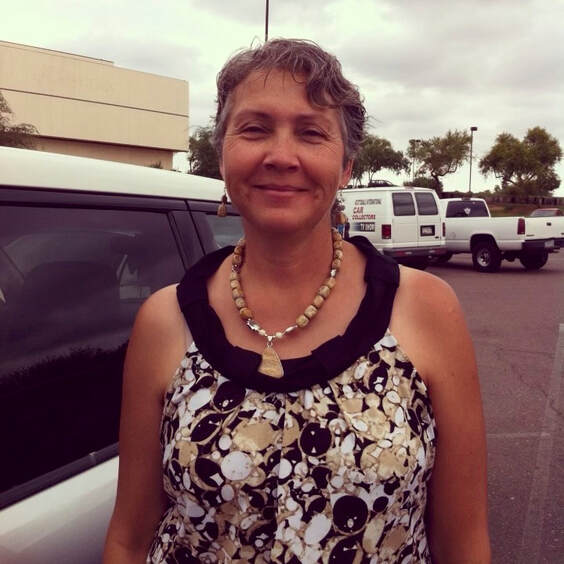 DeAnn Eastman-Jansen is an enrolled member of the Sicangu Oyate and a lifelong resident of the Rosebud Reservation. Her parents were Victor Eastman and Cynthia (Rogers) Eastman. Her grandparents were Rufus Eastman, Charlotte (Young) Eastman and Robert Rogers and Irene (Bordeaux) Rogers. She has been married to Fred Jansen for 34 years DeAnn has 3 children, 4 amazing grandchildren and many other relatives and friends. She feels truly blessed. DeAnn grew up in St. Francis, SD. As a young girl, she spent a lot of time, in the community of Grass Mountain, at her grandparent’s place along the river and she frequently accompanied her mother to the homestead of her mother’s relatives along the river near White River, SD. The only time DeAnn left the reservation was for military service and higher education. She was always encouraged to obtain an education and return to the reservation to help her people. DeAnn achieved this goal by being involved in one type of nursing or another for the last 32+ years. Growing up on the Rosebud Reservation allowed DeAnn to learn the importance of humility, to avoid bragging oneself up, but she has had an illustrious career that we want to acknowledge. DeAnn was in the Army Reserves and National Guard for 8 years as a lab tech and field medic, first with the 311 MASH Unit then with the 730th Medical Clearing Company and made the rank of Sergeant E-5. She served in the USPHS for 21 years and made the rank of Commander 0-5. DeAnn got her BSN and MSN from South Dakota State University (SDSU) and is a proud Jackrabbit! Go Jacks! DeAnn worked for the Indian Health Service for 21 years of her nursing career in all areas of nursing. She started on the medical/surgical, pediatric and obstetric units, but has also worked in the surgical department, outpatient department, Emergency department, Women’s Health department, Public Health Nursing department. She worked as a Case Manager and was one of the first case managers in the Indian Health Service, she also worked as an Infection Control nurse, employee health nurse, certified diabetes educator, SANE Team member, Incident Command Team member, POD team member and a member of Nursing Administration. She was also acting deputy CEO at the Rosebud Indian Health Service for several months during a period of transition there. She worked as an RN and an FNP during her nursing career. In the years since DeAnn left the Indian Health Service, she worked at the Todd County School District and St. Francis Indian School as a school nurse. Over her career she has also worked for private sector hospitals and clinics in the area and has made many friends and colleagues over the years. DeAnn assisted the Rosebud Sioux Tribe and SGU during the COVID-19 pandemic. She experienced personal loss of family members, her beloved Tunwin (Aunt) Betty Young and a few other family members to COVID-19 before the vaccine was available. Not only is DeAnn an advocate for the COVID-19 vaccination, but for all vaccinations and immunizations her entire career. She helped get the immunization clinics at the schools. She administered thousands of immunizations during her career and never had any serious adverse reactions during the entire 32+ years of her nursing career. She has also been deployed to assist with natural disasters such as hurricanes in the United States with her service in the USPHS. She was involved in setting up and working in the hospital portions of the shelters that were set up to assist those displaced and adversely affected by the hurricanes or other disaster. She worked with members of the USPHS, Red Cross, FEMA and other local response teams. DeAnn’s history with SGU began as a pre-nursing student. She enrolled in Medical Terminology, and other prerequisite classes to get into nursing school at SDSU. After acquiring her nursing degree and becoming a licensed RN, DeAnn taught as an adjunct instructor at SGU for many years since 1996. She was a full-time instructor at SGU beginning in 2011, and in 2012 became the Director of Nursing (DON) for the SGU Nursing Program. She went back to work for the Indian Health Service for a few years in 2013 eventually returning to SGU as the DON in 2016 where she remained for the last 6 years. She is very grateful to Leksi, President Lionel Bordeaux for giving her the opportunity to work at SGU for all of these years, and is grateful for having had the opportunity to work with the people of the Rosebud. DeAnn has enjoyed every minute of it. SGU wishes DeAnn good luck in her retirement! Meet The Nursing Department 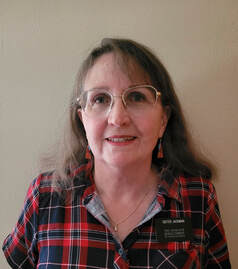 Rhonda Lee Jackman is the new Director of Nursing for Sinte Gleska University. She and her husband Steve moved from Dallas, Texas to Rosebud in March of 2022 to serve here as missionaries for The Church of Jesus Christ of Latter-day Saints. Rhonda has 45 years of experience working with children in the NICU, PICU, Children’s Emergency Room and Pediatric out-patient settings. She worked as the NICU Clinical Manager at Baylor University Medical Center and then managed their out-patient clinic for Medically Fragile and Premature Infants. She and her husband have 6 children and 26 grandchildren that they adore. They spend any time off hiking, exploring, and keeping in contact with family and friends. 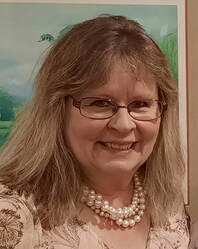 I am Laura (Laurie) Dunn, RN, MSN, Certified Nursing/Healthcare Educator, a nursing faculty professor at Sinte Gleska University since September 2017. During the last 48 years in nursing, I have observed and experienced many healthcare settings and changes in administration, technologies, professional staffing, and the roles of nursing in locales of South Dakota, Alaska and Montana. I enjoy travels, vacations, animals and nature. I proudly tell my family and friends that I have happiness and fulfillment in my work with the SGU Nursing Program faculty and gifted nursing students. 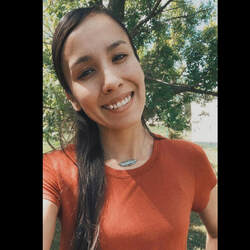 Greetings! I am Marissa Bordeaux, Administrative Assistant for the Nursing Department since March 2022. Prior to coming to Sinte Gleska I spent three years at the Department of Social Services working my way from Secretary to Social Worker, my time before that was spent in the customer service industry all the while maintaining the same goal of just wanting to help people in whatever I could. My career goal since I was a young girl has always been to be in the healthcare field, I always felt I was a natural caregiver especially after becoming a mother to two wonderful boys; and with the amazing Nursing Staff here at SGU, my passion has only grown! I plan to continue to pursue my degree in Nursing and/or Health Information technology to continue to contribute to our wonderful program here. During my down time, I love to spend time off with my family, exploring, swimming and teaching my children to just live in the moment! 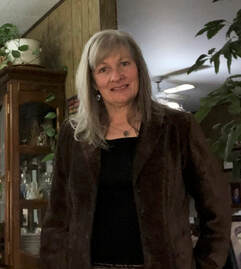 Michelle Allen is an LPN. She graduated from SGU in 2012. She will be returning to Mitchell Tech this fall to finish her RN degree. She started her career as a nurse working in the Home Healthcare program. She worked for a time as a clinical nurse, then worked with our elders in the Nursing home setting. She was hired at SGU in the fall of 2017 to teach the CNA class in the nursing department. She loves her job and enjoys working with the students. She and her current colleagues make a great team and are very excited about helping the Nursing Program thrive. She and her late husband, Roger D. Allen, moved from Draper, Utah to Todd County in 1991. They have one daughter and ten sons! She loves being a grandmother, she has 12 granddaughters and almost 8 grandsons. 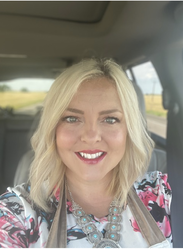 Sharon Egleston, LPN graduate of Sinte Gleska University 2011, I have lived here with my husband on a ranch outside of White River and have been working as a nurse in Long Term Care, Clinic and Hospital since 2010. I have two beautiful children, Zoe 3 ½ years old and Wesley 1 ½ years old. They are the reason for my desire to continue to grow in my nursing experience. I am loving the opportunity to Tutor/ Mentor nursing students here at Sinte Gleska. Šuŋǵila Kiŋ
Šuŋkmánitu Kiči Iŋyáŋkapi Waŋŋa šuŋǵila waŋ kákena ya ške. Yuŋkaŋ šuŋkmanitu waŋ akíh́aŋ t’iŋ kta ča čaŋ h’utkaŋ waŋ ýatáhaŋ ške. Šuŋkmánitu : Eča wiča waŋ akíh́aŋ t’iŋ lo. Eča eh́ah́a yelo. Míyeš le blot’ahuŋka wákte kte nale wáuŋ kiŋ. Čaŋke míyeš hečaŋnoŋ kiŋ le owáṕ́a ška hepelo, inše akíh́aŋ mat’iŋ kta ča hepe kiŋ. W’opate waŋ lečegla ičičaŋyaŋ híyeye kiŋ. Misuŋ, ekta yiŋ na waŋȟi makáku ye. Čaŋke waŋna wašiŋ waŋ yápa kagli ške. Čaŋke akíh́aŋ t’iŋ kta ča čehúpa kiŋ akíyátaka ča š’iŋš’iŋya wóta ške. Waŋna wótiŋ na héya šuŋǵila kiŋ heya: Šuŋǵila : Waŋna ú wo. Eyiŋ na iyáya ča iháka iyáye na wópate el í na wóte hel wópate kiŋ iyáza wo omáŋihiŋ na páhata iyótakapi ške na heya: Ito, čiye, wičoti ekta uŋyiŋ na čep’uŋkič’iyiŋ na uŋku kte. Ihóniata nič’ičagiŋ na miš šuŋka mič’ičaǵiŋ kta. Ho heče hečoŋ k’aŋ na omníowe uŋyáŋkiŋ kte. Heče wíkoškalaka nuŋp mni híyouŋpi na heyápi: Wíkoškalakapi : Šuŋka waŋ iyemíčiye nákuŋ ihóničata waŋ iyemíčiye. Yuŋkaŋ uŋma eyé: Wikoškalaka : Mak’u na híya, heča uŋničapi ča nupiŋ waglokiŋ kte. Ina, ihoŋíčata waŋ iyečičiye, nakuŋ šuŋka waŋ iyečičiye. Waŋna ihoŋičata kiŋ ojuha toŋpi šota iyáye el otkeyapi ške. Ošota mat’iŋ kta, misuŋ. Wiča kiŋ hóhu páhi glí na hóhu kátaŋpi ške. Hóhu okšupi, eyaš wígli waniča ške. Oyas’iŋ yáskepa ča wígli waniča ške. Šuŋkmanitu : Ina šuŋka kiŋ le mičičat’iŋ ye. Waŋna čepe. Šuŋǵila : Čiye, waŋna uŋkni ktelo. Makát’api kta ške lo. Típi waŋ el wakaŋ lowaŋhanpi ške. Típi waŋ el wakaŋ lowaŋhanpi kiŋ el ípi na olowaŋ onspeíč’ičiyapi ške na glínapapi na čatku el iŋyaŋ waŋyaŋke glínapapi na yuptáyaŋpi ške. Yuŋkaŋ pte’óptaye kiŋ etaŋ aglinápapi na h́eyata kiŋyaŋ iŋyáŋkapi ške. Čaŋke šuŋǵila kiŋ šuŋmanitu kiči wičegna iŋyaŋkapi ške. Hehaŋyelo Oihaŋke. The Fox They Run with Coyotes There was a fox going somewhere. And since a coyote could be dying of hunger, he kept chewing on a tree root. He said: Coyote : It’s too bad a man dies of starvation. Well you keep saying so. I will myself kill this war party chief. And I’ll then be chief indeed. They said that I took part in your doing this; well, the fact is that I might starve to death. For sure, all were hanging close against the butcher’s block. My little brothers, please go there and bring me back a piece. And he brought him back a chunk of fat, carrying it in his mouth. And since he might starve to death, his jaw locked. He ate and he said, the fox said: Fox: Come, now! When he up and left, he followed after him, he went to the butcher’s block, where he ate and there at the block he kept walking about, eating one piece after another; and they sat down out on a hill, and he said: Now then, big brother, lets you and I got to the camp, fatten ourselves; and then come home. You should make for yourself a stone hammer; and I shall make myself a dog. Well, he dug a hole to do this, and he said: Lets you and I sit in a well. And then, two young women came for water, and they said: Woman 1: A dog has recognized me, and also I have found my own hammer. Woman 2: Give it to me. Woman 1: No! because we lack such, I will take both home. Mother, I found a hammer for you and I found for you also a dog. They said the hammer was hung up in a sack at the smoke vent. Coyote: Little Brother, I would die of smoke. A human returned home and collected his bones, and they pulverized his bones. The bones were piled, but they were without oil. All who drank there were, lacking oil. He said: Mother, please kill this dog for me. It is now fat. Fox: Brother, lets you and I go home. They say they might kill me. In a tipi there was sacred singing going on. When there was sacred singing going on in the tipi they went there, and they say they learned the songs, they came out, and they came out seeing a stone in the honor place and rolled over. And because of a herd of buffalo, they came out, and they ran flying to the hills. And so, the fox and the coyote ran along with them. The End. Šahiyela Kiŋ Wawákaŋ Ičupí
Ṕíspiza otí waḱpála kiŋ he mahe iyeye ḱel ewíčoti na Šahiyela na Mah́píyato na Laḱota ko wičotí. Na waŋna aŋpetu waŋ el Šahiyela kiŋ wawákaŋ ičupi kta keyápi. Na hočokam típi iyákiju iyáh́peyapi na emničiya. Na waŋna wičaša waŋ šina hiŋ iákataŋ glówiŋ ča waŋna híŋaṕa na típi kiŋ le itáwokšaŋ wauŋyaŋpi tatíye tópa kiŋ owašiŋ paslátapi. Na wičaša k’oŋ waŋna lówaŋ na waŋkal etoŋwaŋ uŋ na ečel líla wakíŋyaŋ aglí. Na wičaša waŋ najiŋ k’oŋ el owótan’iŋ šni na káska iyáya na heče na oyáte kiŋ waŋyank najiŋpi na ečel atan’iŋ. Yuŋkaŋ itázipa waŋ líla haŋska ča yúha najiŋ na wahiŋḱpe waŋ líla haŋska ča nakuŋ iyágna. Na ečel waŋna lówaŋ na itazípa k’oŋ tátiye tópa kiŋ owásiŋ epázo. Na waŋna eyápaha waŋ el í na kiči najiŋ na táku okíyaka. Yuŋkaŋ lečel eya: Eyápaha : Le Šahíyela kiŋ yúha oyáte kaǵapi kte lo, na waŋna wawákaŋ kiŋ le yeyíŋ kta ča taŋyaŋ ablez nayájiŋpi kte lo. Na heyáb inájiŋ na wičaša k’oŋ ake lowan na ítazipa k’oŋ ečel iču na wahiŋḱpe k’oŋ ečel iču na tatúye tópa kiŋ ečel akáta na waŋna ena waŋkátakíya íyeya. Yuŋkaŋ iyóyaŋp híŋgla na taŋwáŋkatuya ya na waŋna makáta glíhaŋ. Na oyáte kiŋ waŋyank wičašipi ča waŋyáŋkapi. Yuŋkaŋ hučaŋ, čokaŋyaŋ heháŋyaŋ, atáya we oha. Yuŋkaŋ lečel wičaša kiŋ eya: Wičaša : le líla wanišečapi kta ča híhaŋna kiŋ wanáse ya po, na le wahiŋḱpe kiŋ toháŋl aničih́aŋpi ča oyáte kiŋ wítaya šna lápi na yeyápi kte lo, na le tohaŋ mat’e eša hehaŋl tokeča waŋji yúha kta; tóhaŋyaŋ iníčaǵapi kiŋ heháŋyaŋ luhápi kta. Na tokša túwa le mak’u kiŋhaŋ he tókel ečamoŋ kta hena omákiyaka, ate hena táwa. Ho waŋna hečeglala ča hiŋhaŋ kiŋ wanáse ya po na takúŋni ih́peyapi šni yo. Hečel waŋna kíblečahaŋpi na híhaŋna el waŋna wánase áya na páha waŋ eyáhe eháŋl kaówiŋh eyáya na pte óta yelo eyápi; na waŋna bu wičahiŋgla ča miš kákel ínawape eháŋl ekta ewátoŋwaŋ. Yuŋkaŋ tóhaŋya ištayeyápi heháŋyaŋ pte kiŋ au. Na waŋna wakúwapi na líla wičaópi, na wágliagli. Hehaŋl híhaŋna el Laḱota kiŋ H́eSapa etkíya ukíya ča ake el owáṕa. Na heháŋtaŋ waŋna waníyetu ota ítahena eša leháŋyaŋ nahah́či yúhapi. Hečel wówakaŋ kiŋ le slólwaya. Cheyenne Reception of Sacred Arrows They were encamped where prairie dog dens are located dug into a creek bottom ridge: the Cheyenne, Arapaho, and the Lakota too pitched camp. The Cheyenne one day stated that they would receive sacred arrows. They set up tents fitted together and gathered for a meeting. And a man came out who had put skin blankets around the outside of his tent, while around this tent were set posts in all four directions for offerings. The man sang, was gazing to the sky, and so it was heavy thunder came. And a man who had stood there was not evident, and he left becoming clear; consequently the people stood looking, and then he became visible. He stood holding a very long bow, and with it also a very long arrow. And so he sang and directed the bow in all the four directions. An announcer went over to him, stood with him, and he said something to him. Then he said: Announcer : With the Cheyenne, a tribe shall be created, and you will come to understand this arrow that he will send off. He stood aside while the man again sang, took the bow so, took the arrow thus, plied the bow in the four directions so, and he sent the arrow directly skyward. Then suddenly the arrow glowed with light as it went exceedingly high and coming back and stuck in the ground. The people who were told to watch saw it. Then the arrow shaft, halfway up, was entirely stained with blood. The man now then said: Man : Go to the buffalo hunt tomorrow morning, so you now might get very well provisioned, and when you are hungry let your people always go together and send off this arrow. And now whenever I die then another should carry the arrow; as long as you increase you should keep it. And if one now gives it to me he tells me how I should do things; these belong to the Great Spirit. Well now, when it is no longer snowing, set out for the hunt, and nothing is to be disposed of. So the meeting broke up, they set out on the hunt in the morning, then getting up on the ridge they then went and turned back and said there are lots of buffalo; and since there was a sudden grunting noise, I went out in that direction to take a look at them. As far as the eye can see there were buffalo coming. They gave the chase, shot many, and went home carrying the buffalo meat. In the morning then, when the Lakotas went off toward the Black Hills I again joined them. From that time, though since many winters, yet to this day they have the arrow. So I have known of this sacred object. Upon their request, SGU Tiwahe Glu Kini Pi Ki (TGKP) "Bringing the Family Back to Life" Children's Mental Health Program, took therapy horses to the White River, SD, Nursing Home on May 17, 2022, for a visit with the residents. The Sunkawakan (Horses) and residents thoroughly enjoyed their time together. SGU TGKP, located on the SGU Campus and Ranch in Mission, SD provides behavioral health services for children, Ages 3-18, with serious emotional behavioral issues and their families. Services include assessment, therapy, wraparound care coordination, Lakota cultural teachings and healing practices, referrals and flex funds for immediate unmet needs. SGU Tiwahe Glu Kini Pi is working to restore spiritual connections and healing with the Sunkawakan Oyate (Horse Nation)and all of creation for children and families through Lakota based equine therapy, summer camps and school and community-based activities. For more information, please visit the program website at Tiwahe.org or contact Marlies White Hat, TGKP Director at: Marlies.whitehat@sintegleska.edu
Spring 2022
Memories Brought to Life Through a Phone Call HI351: 20th Century War in American History II – was held Spring ’22 on Tuesdays 7-10 PM. We started with Korea and at mid-term turned to Vietnam, and then the last 4 weeks we did the US involvement in the Gulf Wars, Iraq, and Afghanistan. The class was held through Google Classroom. As a result, we had opportunities to reach out to veterans and include them in helping us understand these wars. We were in class on Vietnam Veterans’ Remembrance Day (March 29th) and called Duane Hoesing (brother of Lisa Hoesing) and thanked him for his service to the country. Duane served with the Marine Corps in-country 1968-69. In addition, Duane had been most helpful in the curriculum work his little sister was involved in with the creation of this course – including recommending the book used for the Vietnam War (Everything We Had by Al Santoli). The class invited Duane to come back and talk to them and he graciously accepted. Lisa then sent two more invitations to two more brothers who were in the Vietnam War during the same years as Duane’s service – Gary Hoesing (Army Veteran stationed in Virginia involved in debriefing returning Vietnam vets), and Bob Lerch (Air Force Veteran stationed in Okinawa US Air Base which was the primary loading and offloading base for the Marines). On April 5th, the class logged in and was soon joined by all three veterans via google meet or speaker-phone for Duane. As Duane was the veteran who had actually served in-country, the older brothers deferred to him to lead the discussions. His reminiscing involved stories of both his own experience and that of his Marine buddies. He also talked at length about PTSD and how much people have learned of it and how much more is done now for veterans. One of the students in the class was herself a veteran of Afghanistan and was very much involved in the discussions with the other veterans. The two-hour class was one of the most poignant classes ever witnessed by all involved. It was the first time that these three brothers ever talked to each other about their varied experiences. Questions were asked by the students as well as the veterans and the depth of emotion and honesty was beyond emotional and memorable for all involved. Lisa Hoesing (little sister) was thanked by all for making it possible. However, as I said then and will say again – it was divinely inspired. It all started with that one phone call made during class. The students were given contact information for the three brothers, and many sent them private notes of gratitude and thanks. Two weeks later, the class was joined by another veteran of the Gulf War Era – Chris Barrera, who had accepted an invitation from one of the students. Again, the depth of information shared and knowledge imparted was inspiring. As he knew many of the students in the class, it was equally personal and emotional. Through the use of google classroom, opportunities like this can be created and come to fruition. This platform for leaning allows a whole new dimension to become reality – gathering people from four states to ‘the table’. HI351 quotes from student evaluations:
Wáŋaǵi TaČaŋku Kíŋ
Mah́piya ekta Wáŋaǵi TaČaŋku kíŋ kákel slólyapi. Eháŋna wičaša waŋ líla kúja na wáŋna t’a, aŋpétu okíse heháŋyaŋ, na kíni. Máto Tópa ečiyápi kéyapi. Léčel wógláka ča oyáte kiŋ atáya nah́oŋpi. Máto Tópa: Wočičiyákapi kte lo, Le mat́’e kíŋhe waŋkáta owótaŋla waí na čaŋku wáŋ líla owótaŋla ča ógna blé lo. Na okíjáta waŋ el waí. Yuŋkaŋ eh́l wičaša waŋ najiŋ na uŋma čankú uŋma čatkáyataŋ kiŋ ogna ye maši ča ogna blé lo. Na eŋa oíhaŋke ča el waí. Yuŋkaŋ hél wiŋuh́čala waŋ najiŋ na okšaŋkšaŋ waŋmáyaŋke lo na. “Íto le máḱata ih́pečiye ktá tka aké ačiyuštaŋ na oyáte kiŋ atáya olákiŋ kte. Túwa akíto šni kiŋ hé čaŋku waŋ táku waštešni óta na el yáhi kiŋ lél létaŋ kúta ih́pewáye kta ča wówašake maḱupi ye, na túwa akíto kiŋ hé ée čaŋku waŋ wašte kiŋ ogŋa yiŋ kta ča nitúŋkašila ečoŋ maši ye, ča yágnina oyásiŋ akítopi kte.” Na waŋna hétaŋ kúta páoŋzi hékta amáu na ečel om’apáha ča kúta maglíh́paye lo. Hečel oyáte kiŋ oyásiŋ akítopi, hé ohákab. Na le wóoyáke wowíčake, mah́piya ekta mah́́piya waŋ glákiŋǵaŋ h́paye kiŋ hée ča ótaŋ́iŋyaŋ hé é na ičiŋuŋpa waŋna ptáŋyetu ča Wičakíyuhapi ečiyapi kiŋ hé ataŋ́in wičah́pi šakówiŋ mah́piya el yáŋka léčoŋ s’e : Hé wašičuŋ Čiŋška Táŋka eyápi na hé léčel wóoyake hé toháŋyaŋ yaŋke či héhaŋ tuktétu oyásiŋ okíčize yúke kta iyúkčaŋpi nah é Wičakíyuhapi ečiyapi. Na héhaŋl Tayámŋi Ṕa ečíyapi mah́piya el wičah́pi ptáyela hé iš waŋiyetu na blóketu kiŋ nupiŋ oyáka. Héoŋ tóhaŋ líla osni kta a líla kičikiyela ča osni na kičitéhaŋyaŋ ča mašte hečel slólyapi. The Spirit Road The Spirit Road is known to be the way to the Spirit World. Once a man was very sick and died; a half day from then and he came to life. They say he was called Four Bears. There was this account that the whole tribe had heard: Four Bears: I shall tell it to you, Now when I died, I went straight upward, and I went upon a road that was quite straight. I came to a fork. And there was a man standing there, and since he told me to go on one road, the one on the left; on it I went. And I went right to the end. And there stood an old lady; she was looking me over and she said: “Come now. I shall leave you here on earth, but I will again let you go and then you should tell the whole tribe: if one has not tattooed himself there is a road that is much that is not good, and if you get on it, here I will be given strength to cast him down from it; and if one has tattooed himself, it is your grandfather that told me what to do, so one might go on the good road; therefore, you should start out home and everyone mark himself.” And now they brought me back tipped down, and as it is when he pushed me over, down, down, down I went. So, all the tribe were marked, he afterwards. This is a true account {the Spirit Road}; is an apparent cloud stretching to the Spirit Road; and the second is in the springtime, called the “tumbler”, seven stars in the sky appearing to make this, as it were. White men call it the Big Dipper; and as long as there was story-telling this way, they all understood then where there would be fighting battles, so they called it the “Tumbler”. It had been called the Three-headed Deer (i.e., the Pleiades of Taurus), the strs collectively carried a message in the Spirit World, in both the Winter and the Summer. That is why they knew, when it was about to get very cold, when {the Big Dipper and Spirit Road} were close together the weather was cold; and when they were far apart the weather was hot and humid. Ituŋkásaŋ Wašte
Zuya Í - - - - Uŋh́čeǵila kiŋ Hé ihaŋke el wičoti. Yuŋkaŋ uŋgna Tašuŋke Wítko e na Wáyah́táka kiči hí na zúyáye amáṕepi ča: Miyeš: Hóye, Na oŋwéya na háŋpa ko waŋna blúha. Na waŋna uŋyáŋpi. Wičaša wikčemŋa tób ake núm uŋyáŋpi na wakpála waŋ el eyúŋka. Yuŋkaŋ wičaša waŋ léya: Wičaša wanji: Letáŋhaŋ nuŋpa uŋkíyuŋkapi hehaŋl walówaŋ kte lo. Na waŋna nuŋpa eyúŋka. Yuŋkaŋ h́tayétu ehaŋl wičaša ḱ’oŋ waŋna lówaŋ kta ča kah́yápayalake s’e oímníčiye. Na waŋna lówaŋ na čiyótaŋka waŋ yajo na: Hehéh́e, waŋji yákúpi šni yelo, tób taníopi na tóka šakpe páha iwíčayačupi na Tašuŋke kó awíčáyakúpelo. Hó waŋna ayá na Šušuŋi típi kiŋ ihuŋnípi. Na waŋna tawápi kiŋ okíšeya wičakípi. Na waŋna aŋpo heháŋl waŋna nátaŋ ahí na líla ob ečoŋpi. Na waŋna waŋji ahíktépi. Na waŋna tób wičápi. Na tóka kiŋ šakpe ewíčaktepi na páha iwíčačupi. Na waŋna ahi awičayuštaŋpi na akíyágla. Čaŋke waŋna ukíya na H́e Ská iháŋke kiŋ hél ógna uŋgliyáčupi na hečiŋškáyapi h́e kiŋ ógna uŋkúpi na el uŋglíhuŋnípi na le wičaša wikčemŋa áke záptaŋ heyátaŋhaŋ uŋglíyúŋkápi na uŋma k’oŋ héna kúta aglíyúŋka. Yuŋkaŋ líla Wakíŋyaŋ ukíya na líla lel wiyóhiŋyáŋpataŋhaŋ s’e lel kuwápaya líla táku aútapi na nakuŋ oṕaṕa šni kóya líla uŋkúwapi. Na waŋna hiŋháŋna na héhaŋl akíyágla. Na waŋna ukíyiŋ kta tka wičaša waŋ éyapáha na: Wičaša num: Le táku waŋ aútapi k’oŋ hé oyálepi kta ške lo. Na waŋna kaábeya óle ukíya. Yuŋkaŋ kál waŋna panpánpi na el náuŋk áya a miš el owáṕa. Yuŋkaŋ káhepíya waŋ el táku waŋ h́páya ča el áya ča miš éya el blá. Yuŋkaŋ máka kiŋ atáya taŋniš ǵiyéla iyáya na táku waŋ h́páya. Oyáya kiŋ wičaša waŋ el glíča na čagle iyúta. Yuŋkaŋ čaglépi áke záptaŋ. Na ṕa kiŋ šuŋkáwakaŋ ṕa kiŋ iyéčeča h́ča tka nákpa kiŋ ée tókeča, túki h́a kiŋ iyéčeča s’eléčeča. Na ṕa kiŋ wiyóh́peyátakiya etóŋwaŋ h́páya. Na taŋčaŋ kiŋ atáya yuglákšiŋkšaŋ gúyapi; na líla šičamna ča šuŋkáwakaŋ k’oŋ kokípápi. Na wičaša k’oŋ he ake léya: Le uŋkčegila ča ktepelo. Na kútepi načeča kaŋgítame oh́ah́a; na líla púte kiŋ pestóla. Na násula kiŋ líla čiḱala na iwaštela hiŋ śma. Na ísto alíliya yuglákšiŋkšaŋkšaŋ s’a. na sí kiŋ kimáka oh́a. Na tačaŋ kiŋ šuŋkáwakan tačaŋ iŋskokeča. Hó le ozúye kiŋ atáya waŋ’uŋyáŋkapi ča naháh́či óta níuŋpi. Hó le wičoh́aŋ núm obláke kiŋ le uŋma wičaša waŋ táku ečuŋkoŋpi kte k’oŋ héna itókab slólya na owéwákaŋ šni. Tókel éye k’oŋ oyásiŋ ečetu. Čaŋke líla wákaŋlapi. Na h́uŋh́ waŋ’uŋyaŋpi k’upi na oh́olapi. Na nákuŋ uŋkčeǵila kiŋ le toŋwe túweni slólwiaye šni. Léna táku kiŋ Wákiŋyaŋ ób kičizapi keyápi. Hó léna lečel sólowáya. Na líla wákaŋyaŋ ečoŋ wála na héoŋ obláka. Ituŋkásaŋ Wašte. Good Weasel The Mastodon - - - He goes to war There was a camp in the mountain foothills. It was possibly Crazy Horse, along with Griper, who came and when they waited for me to go to the warpath. Good Weasel: Very well! And I had a long with me provisions and a pair of moccasins. And off we went. We were forty-two (42) men that went and took shelter in a creek bottom. One of the men said: Man One: When two of us go off to bed, then I will sing a song. The two went off to bed. And in the evening, then, the man who would sing, performed in front of those having a meeting. He sang, played a flute, and: Oh! - - - too bad! one of you did not come back, four of you were wounded, you took six enemy scalps and brought back their horses as well. Well, they went on and reached the Shoshone quarters. And they robbed them of half of their things. And at daybreak they came then for an attack and did so together. And one was killed in the battle. Four were wounded. And six enemy were killed and their scalps taken. And they came and withdrew and started back. And so, they were on their way home; we were on our way there along the edge of the Big Horn Mountains, came upon mountain sheep in the mountains, went in to them; here on top of a hill were fifteen men lay down for the night; the others camped at the foot. And thunderbirds were really coming our way, here it really seemed as though from the east there were some heavy downward flashings, and we also did much hunting with not much luck also along the way. And we hunted not taking any sleep. And when morning came, they then went on home. But one of the men announced that they should be on their way, saying: Man Two: They say here something that has been flashing you should search for it. Now, they came along scattering to look for it. And they there made noises, and when they went galloping, I followed. There was also something lying on the wayside, to which when they went there, I too went. And the entire ground had already gone brownish, and I went over to what was lying there. The thing, a blue hide, and its short tail lay there. The legs were like human hands but awfully big. And a man came up to it and paced it off. I was fifteen steps long. And the head was indeed like a horsehead, but the ears were different, he seemed to wonder about the likes of the hide. The head lay looking westward. And the whole carcass was burnt in a zig-zag pattern; and they feared the horse since it had a very bad odor. And the man again said: It was here that the mastodon was killed. I suppose they shot it, stuck tight in black shale, and its snout was very pointed. The forehead was very small and the fur was an average thickness. The arms were always crooked in the manner of climbing. The feet stuck decomposing. And the carcass was the size of a horse carcass. Well, when we observed this whole war party, yet many were alive. Well, when I told of these two customs, one other of our men who was going to do something had known of it beforehand, and was not lying. All was just as he said. So, they figured he was very special. They contributed to him some offerings and honored him. Also, he knew of no one to see this mastodon. They say what these were had a quarrel with thunderbirds. Well, this is the way I know of these things. And I thought of doing it in a very respectful way, and for this reason I have spoken - - - - Pretty Weasel. In Lakota then scroll down for English...
Wičah́pi Hiŋh́páya Oyate waŋ wičoti. Yuŋkaŋ wičaša waŋ čuŋwiŋtku nuŋp wikoškalákapi. Yuŋkaŋ haŋhépi waŋ el haŋwiyaŋpa oiyókipi. Čaŋke wikoškalákapi kiŋ nuŋpiŋ taŋkal tiíčaŋyaŋ yaŋkapi na wogláka yaŋkáŋpi; waŋkál etoŋwaŋpi. Hehaŋ wičah́́́pi iyúha lila ileh́leǵa wašteste. Čaŋke ekta etoŋwaŋ yaŋkápi. Yuŋkaŋ uŋma tokápa kiŋ heya: Tokápa: Mitaŋ, itó toke wičah́pi waŋ lila iléǵe čiŋ he waštéwaláka ča kiči wauŋ ni. Yuŋkaŋ uŋma hakákta kiŋ iš heya: Tanka: Miš itó toke ká wičah́pi iwaštela ilége čiŋ he kiči wauŋ ni. Héhaŋ ená ištiŋmapi taŋkál, na waŋna kiktápi. Héhaŋ tipi toktókeča waštešte ogŋa h́payápi. Héhaŋ ablézapi. Yuŋkaŋ tipi kiŋ e sni. Yuŋkaŋ wičaša waŋ koškalaka wag kiči tokiyátahaŋ glípi. Yuŋkaŋ wičaša taŋka kiŋ hé iš wičah́́́pi waŋ iwaštela ilége uŋ hée. Hehaŋ kiŋukaŋ wičayúzapi. Yuŋkaŋ hé mah́píya ekta, keyápi. Yuŋkaŋ wikoškalaka uŋma tokápa kiŋ iglušáka. Yuŋkaŋ aŋpétu waŋ el wičaša nupiŋ omáŋi iyayápi kta. Itókab iyayápi kiŋ iš wiŋyaŋ kiŋ nupiŋ tiŋpsinla wopt́e yápi kta, keyápi. Yuŋkaŋ wičaša kiŋ uŋma taŋka kiŋ heya: Taŋka : hečaŋnoŋpi kte eša, tiŋpsinla nah́ča heča waŋjini woýaptapi kte šni. Hehaŋ iyayápi. Yuŋkaŋ waŋna iš wiŋyaŋ kiŋ h́uŋpe eya yuhápi na tiŋpsinla wopt́a omaŋípi. Yuŋkaŋ tiŋpsinla nah́ča waŋ haŋ. Yuŋkaŋ wiŋyaŋ uŋma tokápa kiŋ heya: Tokápa: Ito, le wouŋptin kta tokayélaka heyápi kiŋ. Yuŋkaŋ uŋmá kiŋ wičala šni. Taŋka: Hiya, oẃekiš t́okákte s’eče. Eya eša, inihaŋ šni, woptiŋ kta čiŋ; na waŋna wiŋyaŋ iglušake čiŋ h’uŋpe ikikču na woptiŋ kta. Yuŋkaŋ maka kiŋ paóh́pa iyeya na kutákiya hiŋh́páya na kuta makoče ekta glih́páya. Yuŋkaŋ teźi kabláza. Čaŋke hokšičala kiŋ ni h́paya. Yuŋkaŋ ziŋtkála waŋ el hí na hokšičala oŋšiya h́paya čiŋ waŋyaŋka na hehaŋ iyáya. Yuŋkaŋ ziŋtkála maka óhiŋniyaŋ uŋpi kiŋ iyúha awičagli na he tokel hokšila kiŋ niyaŋpi kte čiŋ iyukčaŋpi. Hehaŋ iýohila hokšičala ki tokel ičah́́yápi kte čiŋ ikičiyuŋǵapi. Yuŋkaŋ heya: Tašiyaŋnuŋpa: Hau, miye hokšičala le ičahwáya owakíhi yelo. Ča blúha kta. Hehaŋ ziŋtkala iyúha šuŋ waŋji glušlokapi na hokšičala kiŋ ḱupi na hehaŋ iyúha kiŋyaŋ iyayápi. Hehaŋ iš tašiyagnuŋpa kiŋ iš hoksičala ki iču na peji ẃokeya waŋji kaǵiŋ na el kiči oti. Na waŋna waŋiyétu hehaŋl wokéya waŋji ake ḱaǵe na woyúte tokel hokšičala ki yutiŋ kte čiŋ tiyokšu. Hokšičala kiŋ wičakéyapi “hokšila” kiŋ. Tašiyagnúŋpa kiŋ “Takoja” eya čekiya keyápi. Ho waŋna hokšila kiŋ waŋiyétu t́onakeča na waŋna maŋi luzahaŋ. Hehaŋ tuŋkašitku kiŋ wahiŋkpe kičaǵa na wakúte oŋspékiya. Na waŋna koškaláka. Hehaŋ waŋna iyečiŋka taku iyúha oŋspe na wahiŋkpe ičičaǵe na taku eyaš iyúha wičaó. Hehaŋ tuŋkašitku kiŋ waŋna ómani ye ši, tokíyab ómani ye ši, na ečel čajeyáta: wičah́pi hiŋh́paya eya čaštoŋ. Waŋaš ḱakelkiya ómani ya. Yuŋkaŋ oyate waŋ wičoti. Čaŋke el í. Tiwégna ye šni itokab iglutókeča, ówaŋgšiča ičičaǵa na hokšilaičiya. Hehaŋ hokšila eya škatapi. Čaŋke el waŋwičayank inajiŋ. Hehaŋ hokšila waŋ el hi na kiči ẃogláka. Yuŋkaŋ iýe tipi el gle aṕe. Hehaŋ kiči ki. Yuŋkaŋ hokšila kiŋ ḱuŋšitku wiŋuh́čala waŋ kičila tí. Čaŋke el kiči ki. Yuŋkaŋ: Tašiyagnuŋpa: Ho Úŋči, hokšila kolawáya ča hí yelo; ẃoḱu wo. Čaŋke wiŋuh́čala ki woḱu kte, eyaš takuŋi woyúte yuhápi šni. Čaŋke tašupe čosyapi waŋji čisčilah́či čeoŋpa na hokšila kiŋ ḱu. Hehaŋ woglák yaŋkápi. Yuŋkaŋ hokšila kiŋ heya: Hokšila : Takúwe wičaákih́aŋ heči hé? Iwičayuŋǵa. Yuŋkaŋ wiŋuh́čala kiŋ heya: Wiŋuh́čala : Takója, oyáte kiŋ waŋásapi keš, wičaša waŋ le čoḱab ti kiŋ le, Wazíya e ča ti, na pte toŋa čepa wčaópi keš, iyúha wičaki, ča oyáte kiŋ waŋna ota akih́aŋt́api če. Hehaŋ éyokasiŋ na waŋyáŋka. Yuŋkaŋ tipi waŋ čokáb taŋka haŋ na ókšaŋ wakáblapi óta na tipi uŋma kiŋ waŋjini el wakáblapi waŋiča. Hehaŋ Wičah́pi Hiŋh́páya lila čaŋze. Na h́ehaŋ heýa: Wičah́pi Hiŋh́páya: Kola! Toháŋl waŋásapi kte so? Yuŋkaŋ: hihaŋna akotáhaŋ kiŋ hehaŋl waŋásapi kte lo. Ho kola, waŋáse uŋyiŋ kte lo. Na waŋna waŋásapi. Hehaŋ Wičah́pi Hiŋh́paya takólaku kiŋ kiči iš eya yápi. Na waŋna pte wičakuwapi na wičaopi. Hehaŋ iš Wičah́pi Hiŋh́paya pte waŋ lila čepa kah́nige na o na hehaŋ takólaku kiči wapáta. Yuŋkaŋ wičaša waŋ lila haŋska ča wapátapi kiŋ ečel u na waŋji waste túwa ṕata čaŋ kiŋ au. Hehaŋ waŋna Wičah́pi Hiŋh́paya el hi na heya: Ho, pte čepa kiŋ le mayáḱu kte lo, iwaštela eṕe ḱel. Yuŋkaŋ Wičah́pi Hiŋh́páya heya: Wóih́a oieyáye lo! Miš eya le uŋkáglapi kte a waó welo. Yuŋkan Wazíya heya: Waŋ! Hokšila waŋ tókiyátaŋ waóhola šni yáhi yelo. Koháŋ makú wo. Ečaŋnoŋ šni ehaŋtaŋš napáčipazo kte lo. Yuŋkaŋ Wičah́pi Hiŋh́páya heya: Wičah́pi Hiŋh́páya: Ungna niyéš anpáčipazo ki. Čaŋke Wazíya lila čaŋze: Wazíya; Napáčipazo kta! Na nápe apázo, tka nape kiŋ papšuŋ ih́peya. Yuŋkaŋ ake nape uŋma ečiyátaŋ ake apázo, tka ake papšuŋ. Hehaŋl tokel h́aŋ kta okíhi šni. Hehaŋ kigla. Čaŋkeš Wičah́pi Hiŋh́páya kolaku kiči wágli kipi. Hehaŋ kuŋšitkupi wiŋuh́ča kiŋ lila wiyuškiŋ. Wičah́pi Hiŋh́páya hena oyate wičoti el tehaŋ uŋ, na waŋna ake akih́áŋpi. Hehaŋ heya: Wičah́pi Hiŋh́páya: Uŋči, Wazíya čiye ti el yiŋ na wakáblapi waŋji omákičiŋ yo. Čaŋke wiŋuh́ča kiŋ heya: Wiŋuh́ča: Hiya, takoja, makú kte šni ye. Hówo, kéyaš yiŋ na eya yo. Čaŋke wiŋuh́ča kiŋ y ana el i na heya: Waziya, mitakoja Wičaȟpi Hiŋȟpáya wakáblapi waŋji očiŋ umaši ye. Yuŋkaŋ Waziya heya: Waziya: Wiŋuh́čala šiča, ako gla yo. Čaŋke wiŋuh́čala kiŋ čeya gli na ogláka. Hehaŋ Wičah́pi Hiŋh́páya ya, el ya, na Waziya ti kiŋ okšaŋ wakáblapi ota otke. Čaŋke waŋji iču na aglíyaču. Čaŋke Waziya čaŋze, eyaš tokel owáŋaseta nape papšuŋpšuŋ kiŋ oŋ kokípe, na tokel háŋ kta kokípa, tokel oyate kiŋ šičaya wičakuwa, čaŋke kokípapi na tuwéni Waziya ítkokipiŋ kta okíhi šni. Yuŋka tokiyátaŋ Wičah́pi Hiŋh́páya hí, na oh́óla šni ya, kú, waki, slolkiya. Hehaŋ kokípa. Akeš Wičah́pi Hiŋh́páya aŋpétu waŋ el Waziya ti kiŋ el í, tima í. Nakuŋ tuwéni Waziya ti kiŋ el yiŋ kta okíhi šni. Tima iyáyiŋ na čatkúta iyótáka, na Waziya itázíipa tawa ki čatku el otka lila haŋska. Čaŋke iču na heya: Waziya: Čiye Waziya, wanásapi. Čaŋke t́okeh́če le itázipa kiŋ akáte lo. Na lila akáta. Yuŋkaŋ yuwéǵ ih́péya na glínaṕe. Čaŋke Waziya lila čaŋze na ičamna tanka waŋji uyiŋ kta, ḱeya. Na waŋna ičamna taŋka waŋ hí. Na aŋpétu toŋa lila ičamna na čaŋke sám lila wa šma áya. Na waŋna tipi kiŋ kiŋ tiče kiŋ heháŋyaŋ ihuŋniya wa šma kiŋ. Hehaŋ Wičah́pi Hiŋh́páya čaŋksa waŋ iču na taŋkal kiyu na kóskoza Waziya ti kiŋ etkíya wa kiŋ iyúha kawita aya, na waŋna Waziya ti kiŋ atáya mahé haŋ, na wa kiŋ iwáŋkab iyéya. Yuŋkaŋ Waziya čiŋča na tawíču ki ob napápi. Čaŋke čaŋksa kiŋ oŋ kte wičiŋ yaŋka na iyúha wičakte. Na Waziya čiŋča waŋji čikála kiŋ makóh́loka waŋ el mahel iyáya. Čaŋke hečel ni iyayéya. Waŋna Waziya ktepi kiŋ oŋ oyate kiŋ lila wiyúškiŋpi; ičiŋ kakišwičaye čiŋ oŋ waŋna ktepi kiŋ lila iyuškiŋpi na Wičah́pi Hiŋh́páya yatáŋtaŋpi . . .. Ho, hehaŋ ake iyópte ya, íčimaŋi ya. Na ake oyate waŋ wičoti ča el i. Yuŋkaŋ ake oyate kiŋ akihánte kiŋil uŋpi. Čaŋke ake iwičayuŋǵa pte waŋičepi héči. Yuŋkaŋ heyapi: Oyate: Pte ota, tka toháŋl waŋásapi kta keš kaŋgi ska waŋ pte kiŋ owičakičiyaka na lila napápi, ča kičiya. Yuŋkaŋ heya: Hokšila: Ho kola, pte mičičaǵiŋ kta ča ečáš pte waŋji čepa kiči waimnaŋki kta ča nupiŋ uŋyáopi kta, kiŋhaŋ ečaš miye eŋa pal émayáoŋpiŋ na wigli kiŋ le natá el akaŋ émayagle kta. Waŋna pte otápi ča kaŋyéla yápi. Hehaŋ waŋna pte ičíčagiŋ na etkíya y ana pte uŋpi kiŋ el egna iyáya. Hehaŋ oyate kiŋ pte kiŋ wičáyapi. Hehaŋ ake kaŋǵi ska kóŋ kiŋyaŋ u na hehaŋ eya: Kaŋǵi Ska: lila naṕa po. Niktepi kta ča au welo! Hehaŋ pte oŋ ake lila napápi. Čaŋke oyate kiŋ lila wičakuwapi, tkaš tuwéni wičakiglege šni. Hehaŋ Wičah́pi Hiŋh́páya pte na pte waŋ čepa yuha iwaštela iŋyaŋka. Čaŋke koláye čoŋ ihuŋni na nupiŋ wičaó na wičapáta na Wičah́pi Hiŋh́páya ena oáblel éoŋpa na uŋma pte kiŋ akiyágla na wígli oŋ pa kiŋ akaŋ egle na kigla. Hehaŋ Wičah́pi Hiŋh́páya ziŋtkála očaje iyúha napápi. Hehaŋ nata el wigli eya he oŋ el hiyótaka. Yuŋkaŋ kaŋgi uŋ hée. Hehaŋ wigli kiŋ lila yuta, tka uŋgnáhela si nupiŋ yuza na yuha kigla hiyáya. Čaŋke kaŋgi uŋ lila óŋšičiya na heya: Amáyuštaŋ yo! Wowášake mitáwa čiču kte lo, Hiya! Oyate eya wičalukakije na ota téwičayaye čiŋ oŋ ačiyuštaŋ kte šni na iš eya kakišniyaŋpi kta. Čanke kaŋgi kiŋ lila oŋšiičiya oŋ waŋna yuha ki. Čaŋke oyate u fake lila akišapi. Kaŋgi waŋ kakišwičaye čoŋ ake Wičah́pi Hiŋh́páya kte. Hehaŋ tipi waŋ el si nupiŋ pah́tapi na ṕa otkeyapi na oh́late četipi na ṕa izitapi. Čaŋke hóakaŋ na óhaŋketa tá. Hehaŋ ake oyate kiŋ Wičah́pi Hiŋh́páya yatáŋtaŋpi . . .. Čaŋke el i. Yuŋkaŋ oyate kiŋ ake čaŋ ota, eyaš tušu eče akíoŋpi. Čaŋke he taku oŋ héčoŋpi ki iwičayuŋǵa. Yuŋkaŋ heyápi: Oyate: Tuwa čaŋ kiŋ i ča wičaša waŋ hiŋšma ča čaŋ etaŋ hiyu na šna nuŋǵe okah́ol iyuwičaya ča waŋna ota wičakte keyápi ča tuweni čaŋ kíŋ yiŋ okíhi šni keyápi. Wičah́pi Hiŋh́páya: Tokša čaŋ kíŋ mni kta. Na waŋna wíkaŋ waŋji yuh ana čaŋ šoke etkíya ya na waŋna čaŋ le omaŋi na waŋna etaŋ pah́tiŋ na waŋna kíŋ kte čiŋ. Hehan wičasa was hiŋšma uŋ hiyu na nuŋǵe mahel okáhol iyéyiŋ kta. Tka ečaŋl nuŋǵe uŋ kaksa yeya miwákaŋ oŋ, na hehaŋ ṕa kaksa na tezi kabláza. Yuŋkaŋ wičaša ota tezi mahel čan kíŋkíŋ uŋpi. Hehaŋ oyate uŋ ake lila wiyuškiŋpi na lila čaŋ kíŋpi na ake Wičah́pi Hiŋh́páya yaónihaŋpi. Hehaŋ ake iyópte ya íčimani y ana ake oyate waŋ wičoti. Čaŋke el i. yuŋkaŋ hehaŋl hé oyate kiŋ iš wakpála waŋ taŋka ogna tipi, tka mni yatkaŋpi šni, wá eče skaŋyápi na yatkáŋpi. Čaŋke tóka yuŋkaŋ hé wakpála mni etaŋ yatkáŋpi šni héči iwičayuŋǵa. Yuŋkaŋ heyápi: Tóka: Tuwa mni híyoi ča wamnitu waŋ mni máhetáŋhaŋ yamáhewíčayaya keyápi ča heoŋ tuwéni mni hiyóye šni keyápi. Wičah́pi Hiŋh́páya: Tokša mni hiyo mni kta. Na waŋna mni hiyoi na waŋna mni okápta na gliču kte ehaŋl taku waŋ hé yukaŋ ča ahiyókasiŋ na yamáheyayiŋ kta, tka ečaŋl pá kaksáyeya na aki. Čaŋke ačetipi na ake Wičah́pi Hiŋh́paya lila yaónihaŋpi. Hečel oyate iyázaŋ ománi na taku ečoŋpičašni ečoŋ keyápi. Na tukt́el el taku waŋiča naiŋš taku ečakíjapi ča niwíčaya ománi keyápi. Na hehaŋ tókel tíŋ naiŋš tokh́aŋ kiŋ tuweni slólye šni, keyapi. Fallen Star Once there was an encampment. There were two young women, daughters of a man. Then one night the moon light was quite pleasant. So, both young women were sitting outside leaning against their tipi and engaging in conversation. They were gazing upward. All the stars were very pretty glittering. So, they were gazing at them. One, the older, said: Older woman: My sister, oh how I would love to live with a very brilliant star. The younger of the two women, herself said: Well, how I would like to live with a star of average brilliance. They then, right there, fell asleep, in the out-of-doors; and now they awoke. They were then lying in a tipi quite fine but quite different. It was clear realization. It then was not their tipi. And a man along with a young fellow arrived there from somewhere. The older man was he who was the brightly shining star; and the young man was he who was but a moderately shining star. Each took one as his wife. They then say this occurred in paradise. The elder of the two young women conceived. And then one day both men would leave on a journey. Before they left, they said both women themselves would go to dig turnips. So, the older of the two men said: Though you should do this, you should not dig any turnips that are in bloom. They then left. The women themselves then brought along some turnip sticks and went on a trip to dig turnips. Now there stood a turnip in bloom. Now the older of the two women said: Older Woman: Well now, why is it they say we may dig this? The other woman did not agree with her. Younger Woman: No! It is liable perhaps something will happen to us. Though she said it, she did not fear, wanting to dig. So, the woman who had conceived took her turnip stick and would set to digging. Suddenly she broke through the ground, fell downward, and plummeted to an earthly place. Her belly then burst. And an infant boy lay there alive. And a bird came to him, saw the infant boy pitifully laying there and went away. He brought back all the birds who always inhabit the earth, and they made guesses as to how boys should live. Each then raised questions among themselves as to how they should raise the little boy. Even so, all were unable to raise him, they say. Then a bird, they called meadowlark, was asked. So, he said: Meadowlark: Greetings! I am able to raise the little boy; so, I will keep him. Then all the birds plucked out one wing feather, gave it to the infant, and then they all flew away. The meadowlark himself took the little infant boy, built a shelter, and lived there with him. In the winter, he again built a shelter and carried to the house food as the little boy would eat. Little boys were called “boys”. The meadowlark they say prayed he be called “grandchild”. Eventually the boy was a number of years old and was fast at walking. His grandfather made him arrows and taught him to shoot them. He was now a young man. He then learned everything on his own, and he crafted arrows and shot them at most everything else. Then his grandfather told him to go on a trip, and he told him which direction to travel, and so he gave him a name: “Fallen Star”. Then and there off he went traveling that way. There was a camp. And he went to it. He did not go among the tipis until he disguised himself, making himself appear ugly and like a boy. Some boys were then playing, so he stood there watching them. Then a boy came over to him and spoke with him. He then waited for him to go to his home. He went back with him. The boy lived only with his grandmother, an elderly woman. So, he arrived back there with him. Boy: Hello grandmother, this boy with whom I have made friends has come; feed him. So, the grandmother would feed him, but they had no food. So, she roasted a bit of warmed intestines and gave it to the boy they then sat and talked. The boy said: Fallen Star: I would like to know why is it people are without food? It was this he asked them. So, the grandmother said: Grandchild, though the people are out hunting, there is a man, this one here who lives in our midst, it is he living to the north; and though a number of buffalo were shot, he robbed all of them, so many of the people were starving. He peeked in and saw him. The tipi stood tall in the center and much dried meat in it was all about, and in not one other tipi was there any meat. Then Fallen Star became very angry and said: Fallen Star: Friend, when will there be a buffalo hunt? Boy: The day after tomorrow there will then be a hunt. Fallen Star: Well then, friend, let us go hunting. Now they went hunting. Fallen Star himself then together with his friend also went. They pursued the buffalo and shot them. Then Fall Star chose the fattest one shot it, and then he and his friend butchered the buffalo. When they were butchering it, a very tall man came along, and he was someone who brought along a good butchering block. Then Fallen Star came to him and said: Fallen Star: Say! Would you give me this fat buffalo? Where there is a matter of concern I say so. You have stated something for a laugh! I also shot this one, so we are going to take it home. Waziya: Hey! You a boy have come from some place for which there is no regard. Quick now, give it to me. If you don’t do it, I am going to point my finger at you. Fallen Star: I am going to point my finger at you. And he pointed it at him, but he fell and sprained his hand. So again, he pointed at him with the other hand, but again he sprained it. He was then unable to act as he would. So, he went home, and so Fallen Star with his friend got back bringing home the meat. Their grandmother was very happy. Fallen Star stayed in the people’s camp for a long time, and now again they were becoming hungry. So, he then said: Fallen Star: Grandmother, Waziya went to my older brother’s house and said: Beg a piece of meat for me. Grandmother: No, grandchild, he will no way give it to me. Fallen Star: Alright. But go and say so. So, the grandmother went, got there, and said, Waziya, my grandson Fallen Star recommended I beg you for a piece of meat. Waziya: You evil grandmother, go home to the beyond! So, the grandmother arrived home, crying and telling her story. Fallen Star then left and went to him, and all around Waziya’s tipi hung much meat. So, he took a piece and started on his way home. Waziya was angry but afraid because of how his hands got sprained at the buffalo hunting ground; and how he feared to act; and how he was wrongly pursuing the people, so they were afraid of him. No one was able to challenge Waziya. And he was aware that Fallen Star arrived in the area, failed to pay him respect, came back, and robbed him. He was then afraid of him. Again, one day, Fallen Star went to Waziya’s tipi and went inside, and no one was able to go into Waziya’s tipi. He went on in and sat at the place of honor, and Waziya’s own bow that was hanging to the left side was very long. So, he took it and said: Fallen Star: Brother Waziya, they are out hunting. And so somehow, he bends his bow. And he could really bend it. Throwing it down he broke it and went oustide. So Waziya got very angry, and he stated that a great storm would come, and a great storm did come. For a number of days, it really stormed, and so the snow really got more than deep. The snow reached up to the tipi’s smoke flaps. Fallen Star took a stick then, came oustide, waved it toward Waziya’s tipi, brought all the snow together, and now Waziya’s tipi stood entirely in the pile, and he had the snow above its top. Then Waziya’s son together with his wife fled. So, with a club he killed a woman chaser and killed them all. One of Waziya’s little children went into a cave. So, this way he survived. Since Waziya was killed the people were very happy; truly, it was because he made them suffer that when he was killed, they were very happy, and Fallen Star was praised. Yes, at that time then he went on; he went on a trip. He again came to a tribe that was in camp. And again, the people were completely starving. So again, he asked them whether they were lacking buffalo, and they said: There are many buffalo, but when they would also go to the hunt, a white crow carried on a discussion with the buffalo and they really took to flight, so nobody shot a thing. He had then a pouch skin containing oil, and the tribe again set out on the hunt so they might hunt buffalo. So, he went along again with the boy with whom he made friends. So, he said: Boy: Now, friend. I shall make myself into a buffalo, and indeed when I should run along with a fat buffalo you should shoot us both. Indeed, if when you lay me down carefully right here to butcher, you should put this grease on my head. Meanwhile many buffalo were going nearby. He then changed himself into a buffalo, went toward them, and where the buffalo were he went out amongst them. The people then became buffaloes. Again, that white crow came flying and said then: Really, flee! They have come to kill you! Then because of this the buffalo again really fled. So, the people really chased them, but no one at all caught up with them. Fallen Star then jogged carefully along with a buffalo, one fat buffalo. So, the one he made a friend of came up and he shot and butchered them both, right there Fallen Star piled one, and the other buffalo he carried home, with grease he put on the head and brought it home. Then Fallen Star brought home also birds of all sorts and they ate. One bird came to fly, and all up and fled. Also because of there being grease in the head, it came to sit there. It was the white crow. It then gulped down the grease; but all at once he grasped both its feet and went on, on his way home. The white crow felt very sorry for itself and said: Let me loose! I will give you my power. Fallen Star: No! You have made some people suffer; since you have brought death to many, I will not let you loose, and so let him too be punished. Since the white crow very much indulged in self-pity, he held onto it by force. So again, the people cheered for him loudly. The white crow that had made them suffer Fallen Star again killed. In the tipi then, he tied it up by both its feet, its head was hung dangling, beneath it a fire was made, and its head smoldered. So, it wailed and, in the end, perished. Then again, the people kept praising Fallen Star. So, he went to them. And the people again stoked the fire with lots of wood, but there were only lodge-poles. And so, he asked them the reason for their doing this. And they said: A man who goes to carry wood, a man with thick hair who comes from the woods, and who keeps dumping into people’s ears, kills, they say, many people. Fallen Star: Before long I will go to carry wood. Now, he had a rope, went toward the thick woods, walked to the woods, lashed together some wood, and now intended to carry the load. But then a man wearing a thick set of hair came out of the woods and would dump the load into his ears, but at that moment he struck his ears with a sword, then his head, and then he laid open his belly. And many men inside his belly were loaded down with wood. The people were then again very glad, for they were really loaded with wood; and Fallen Star was again honored. Then again, he went on from there, going on a journey, and again there was a tribe camped. He went over to it. This tribe was living by a large creek, but they didn’t drink its water; they only melted and drank the snow. So, he asked them whether strangers too drank from this creek water, and they said: Those who go for water, they say, a large creature from in the water snatches with its mouth, and they say for that reason no one goes there for water. Fallen Star: After a while, I will go for water. Now he went for water, dipped out some water, and when he was about to start back there was then something he spotted that might snatch at him, but suddenly he cut off its head and brought it back. And so they built a fire on it, and again Fallen Star was given high honors. They say people walk then in sympathy with him, and that he does the impossible. Moreover, they say where there is something lacking or something from which they suffer, Fallen Star goes about making them well. And what has become of him nobody knows, so they say. |
Strengthening the Circle :
|
- TIPI
- Quick Links
- News
- Governance
- Discover SGU
-
Student Life
- Facts and Figures
- Online Learning Support
- New Student Info/Registration
- Research Review Board >
- 2023 Graduation Ceremony
- 2023 Graduate Photos
- Student Association
- Literacy Center
- Disability Services
- Counseling Services
- Child Care
- Transportation
- Security
- Bookstore
- Library
- Web Mail
- What You Can Do At SGU
- Poll
- Student Opportunities
- After Graduation
-
Departments
- Staff
- Giving
Mailing Address: Po Box 105/Mission, SD/57555
Shipping Address: 101 Antelope Lake Circle/Mission,SD/57555
605-856-8100
Shipping Address: 101 Antelope Lake Circle/Mission,SD/57555
605-856-8100
Accreditation and Sinte Gleska University – A Short History
Sinte Gleska University has been accredited by the Higher Learning Commission (HLC – formerly the North Central Association) since 1983. Because SGU is accredited, colleges and universities across the United States will review courses that students take at SGU and will consider them for transfer.
For more information, and to see the most recent correspondence from HLC to SGU, click on the HLC logo
Sinte Gleska University has been accredited by the Higher Learning Commission (HLC – formerly the North Central Association) since 1983. Because SGU is accredited, colleges and universities across the United States will review courses that students take at SGU and will consider them for transfer.
For more information, and to see the most recent correspondence from HLC to SGU, click on the HLC logo
All Media on this site ©2023 Sinte Gleska University.
Do not use without permission. Sinte Gleska University and the Sinte Gleska University Logo are Protected and Registered Trademarks.
Not to be used without permission.See HERE for legal information
Do not use without permission. Sinte Gleska University and the Sinte Gleska University Logo are Protected and Registered Trademarks.
Not to be used without permission.See HERE for legal information
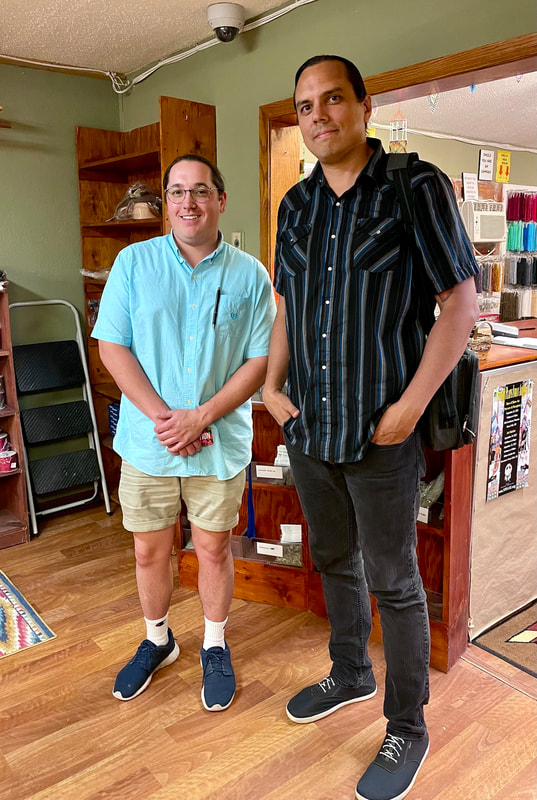
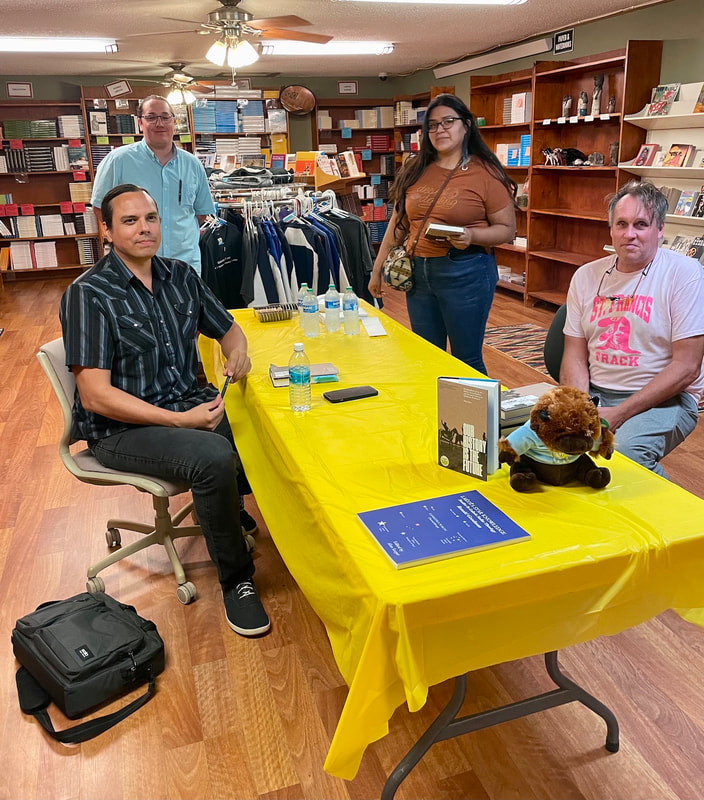


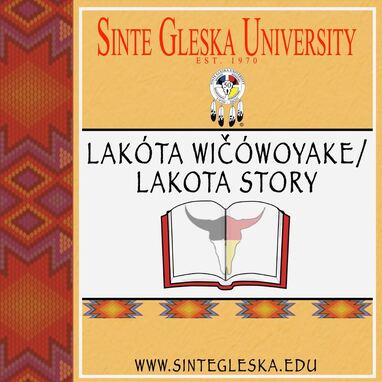
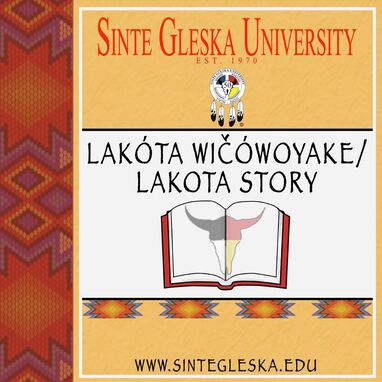
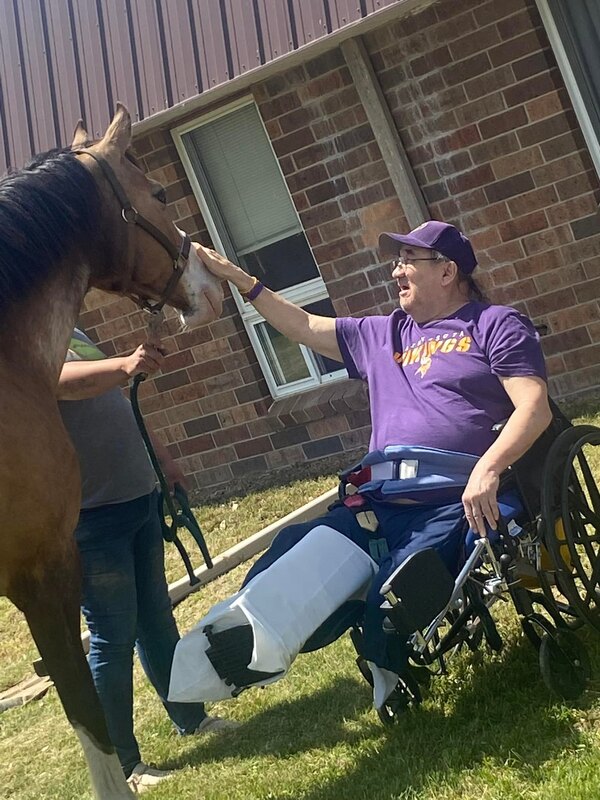
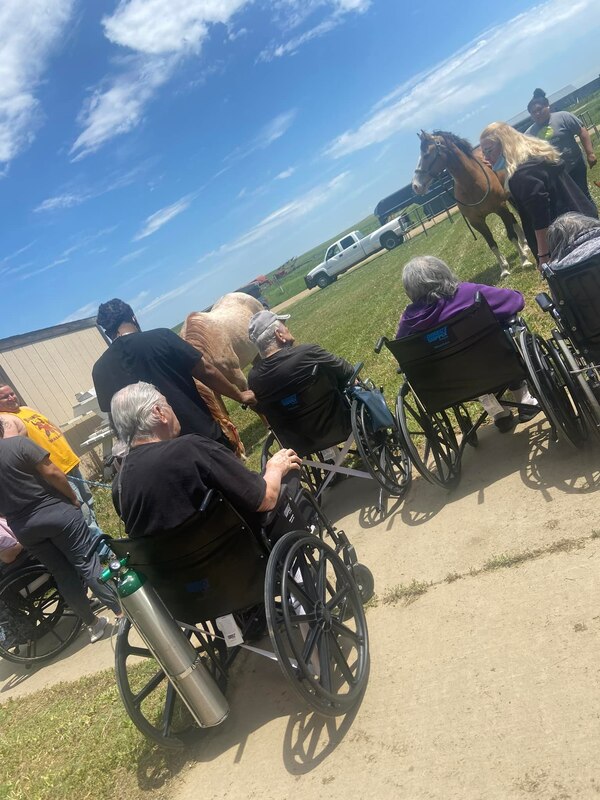
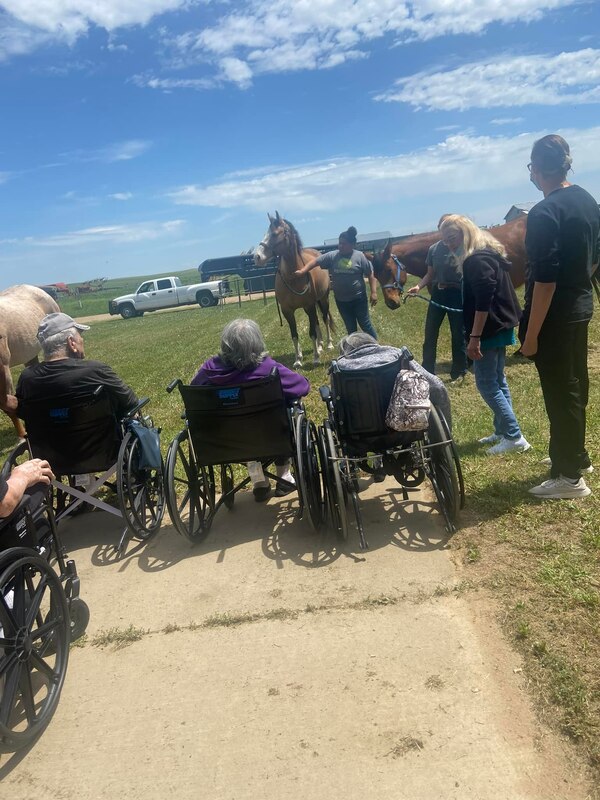
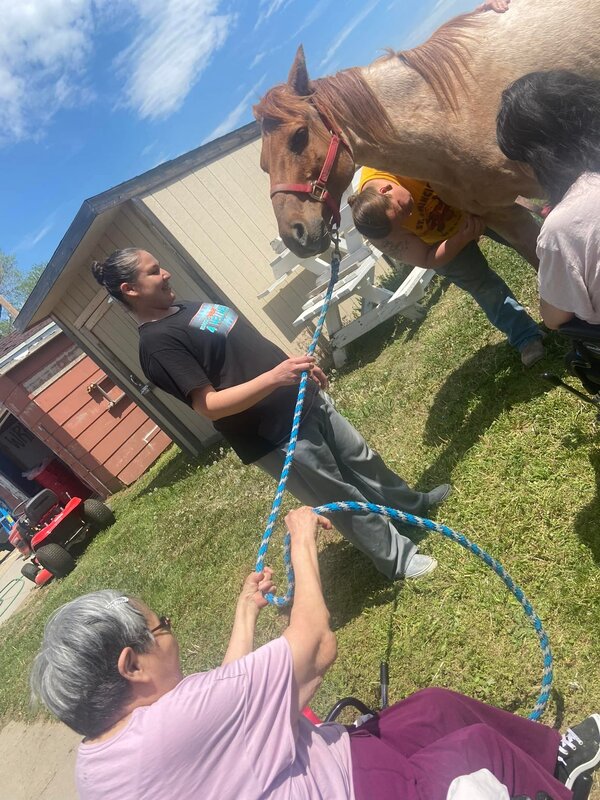
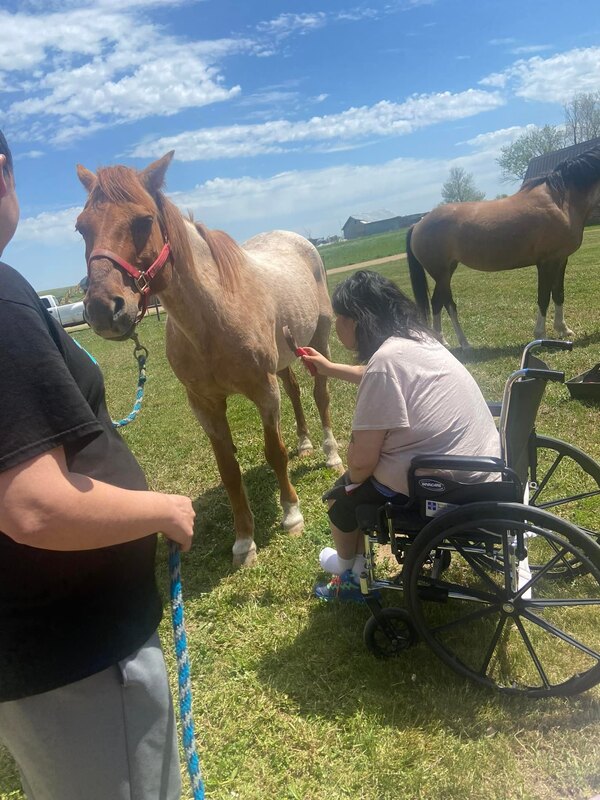
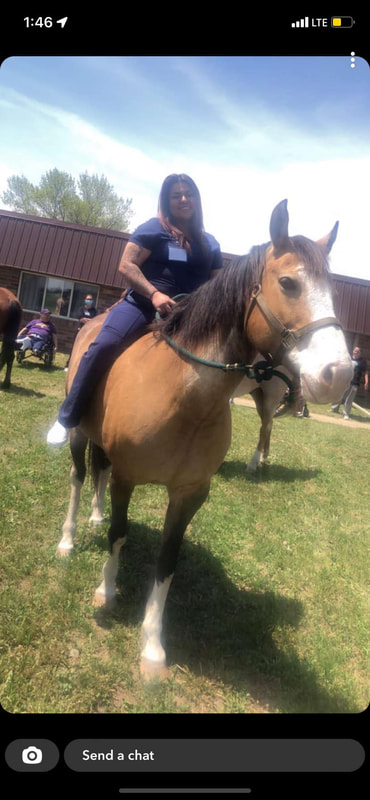
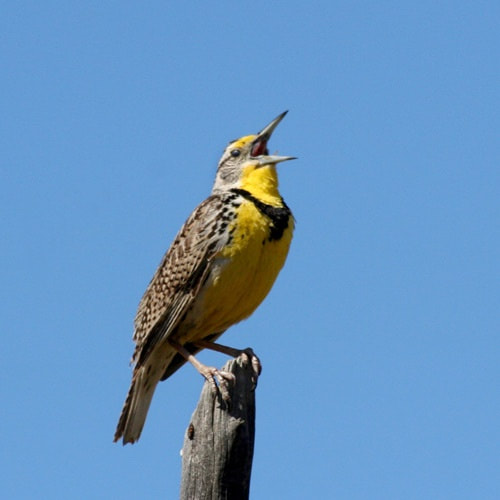
 RSS Feed
RSS Feed
